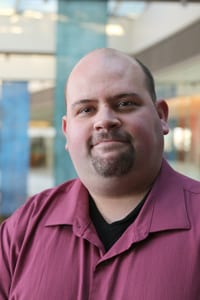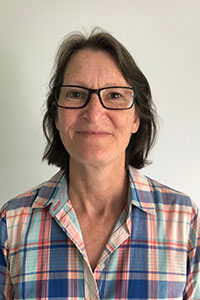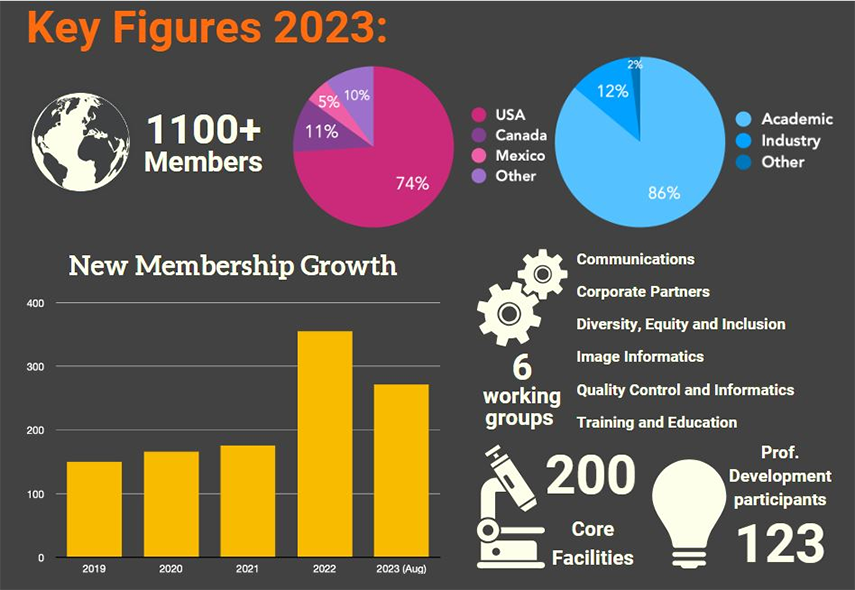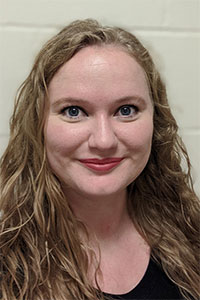If there is one constant in biology, it’s the need for precise, robust imaging. From the first microscopes created in the 17th century, capable of magnifying an object to 30 times its normal size, continuous advances in biomedical imaging have driven a spectacular new understanding of life.
Now, a program housed at the Morgridge Institute for Research is dedicated to helping biomedical imaging scientists better understand one another and the technologies they develop and utilize.

BioImaging North America (BINA) was created as a 501(c)3 non-profit by a group of like-minded volunteers in 2018, during a national “Frontiers of Microscopy” conference held at the Virginia-based Janelia Research Campus. Its capabilities grew greatly in 2020, when the Chan Zuckerberg Initiative (CZI) awarded BINA its first grant led by Kevin Eliceiri, BINA Co-Chair and Morgridge biomedical imaging investigator, funding two full-time staff members to organize programs across Canada, the United States and Mexico. The grant had broad participation across the U.S., Canada, and Mexico including leadership efforts from Eliceiri’s fellow BINA co-chairs Alison North of The Rockefeller University and Claire Brown of McGill University.
Eliceiri is a UW–Madison professor of biomedical engineering and medical physics, and long-standing champion of the need to support imaging experts in the professional community. His lab is active in open-source hardware and open-source image analysis software and supported by a vibrant virtual community on the Image.sc Forum.
CZI in fall 2023 renewed its support for BINA, which has now grown to more than 1,200 members from across the globe, including 200 core imaging facilities in the U.S., Mexico, and Canada. In 2022 alone, more than 350 new members joined, and that number has already been matched in 2023.

“It has been extremely gratifying to see the organization grow so rapidly during our first round of CZI funding and to receive such positive feedback from our community about the benefits our programs are having,” says BINA Program Coordinator Nikki Bialy. “This wouldn’t have been possible without CZI’s support and we are delighted to be able to continue our work thanks to their funding renewal.”
Eliceiri credits the success of the program to Bialy and Program Administrator Vanessa Orr. The team has led scores of in-person and online community events and organized the first annual “BINA Community Congress” in Woods Hole, Mass., in October 2022. In September 2023, BINA hosted its annual meeting jointly with the Latin America BioImaging (LABI) community, “Bioimaging Across the Americas” in Morelos State, Mexico, with a record in-person attendance for both events of over 70 members.
“We’re trying to set up an organization that has all the elements we would want to build strong, lasting, interactive communities,” says Eliceiri. “And so a large part of it has been setting up working groups that focus on the various topics that have been deemed as most pressing to bioimaging.”

With the support of CZI, the team has been able to develop a professional development program, providing registration support to attend imaging workshops that cut across dozens of imaging modalities. BINA also started an “Exchange of Experience” program, which provides travel support for scientists to visit peer imaging facilities and learn new techniques and facility management skills. There is also an annual imaging contest open to all members, winners of which have their submissions integrated into the BINA website, marketing, and social media materials.

The team also created a portable service called the “Metrology Suitcase” based on a similar effort developed in France. This suitcase-sized kit provides labs with a starter set of tools they need to calibrate their microscopes to produce more reliable and reproducible quantitative image data. Labs can use the kit and mail it on to the next interested group. Additionally, they can submit their data to a global database, and see where their instruments fall on the spectrum of data being collected around the world to help troubleshoot and increase performance and reliability of their systems.
“We hope that imaging can become more quantifiable, more rigorous and more shareable,” Eliceiri says. “We want to make sure that people who do their science are doing it the most reproducible, most accurate way possible.”
While the pandemic delayed the first “BINA Community Congress” from taking place in Madison, Morgridge and UW–Madison will host next year’s Congress in Madison in September 2024. Stay tuned for updates on this and other BINA progress on their website.
